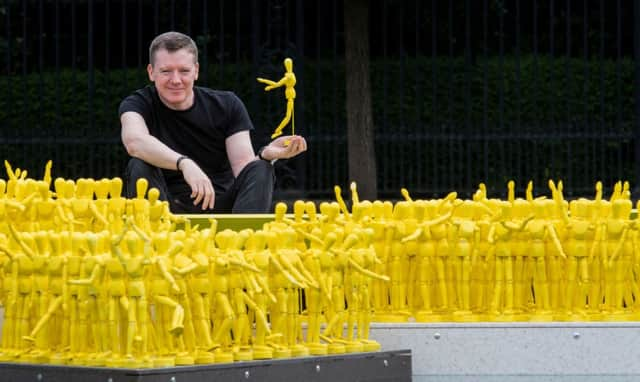Brian Ferguson: Seeing top festivals team up is an exciting prospect


A whirlwind of change has swept through the whole Scottish arts world since the arrival of new director Fergus Linehan, who immediately brought its dates back into line with the Fringe for the first time in nearly two decades. You could feel the foundations of the festival shaking when Linehan unveiled contemporary music acts like Mogwai, Franz Ferdinand, King Creosote and Young Fathers in his first couple of line-ups.
Moving the fireworks finale back to a Monday night, forging a partnership with a school in one of Scotland’s most deprived areas, and instigating free opening night spectaculars that brought tens of thousands of people onto the streets would also have been unthinkable a few years ago. Then there was the coup of persuading Alan Cumming to bring his hit New York cabaret show to Edinburgh for a month.
Advertisement
Hide AdAdvertisement
Hide AdHowever it was the scenes that unfolded at a packed-out Playhouse on a Tuesday night that will linger long in the memory of this observer. Violinist Greg Lawson’s remarkable reimagining of Grit, the final album by groundbreaking Scottish musician, producer and composer Martyn Bennett, took Glasgow’s Celtic Connections festival by storm when it opened the event 18 months previously.
What was assumed to be an epic, one-off experience was repeated, if not bettered, at the Playhouse in August as Bennett’s final legacy to the Scottish music scene – made after his battle against cancer had forced him to give up performing live – took on a whole new life. It now seems inevitable that Lawson’s 80-strong Grit Orchestra will be back before long.
It was the first time a large-scale concert with traditional Scottish roots had made it onto an EIF stage in its 70 years. Elsewhere in the EIF programme, two mainstays of Scotland’s trad scene over the last decade – Karine Polwart and Martin Green – were premiering their own intimate stage shows.
Now, intriguingly, both Wind Resistance and Flit are heading to Glasgow under the new partnership forged between the EIF and Celtic Connections. The latter will also host the latest incarnation of Aidan Moffat’s acclaimed folk song project Where We’re Meant To Be, a commission for the Commonwealth Games cultural programme.
For Celtic Connections artistic director Donald Shaw, it is all a far cry from the reign of Sir Jonathan Mills as EIF director, when he would write every year asking why Scottish music was missing from the nation’s most prestigious cultural event. The next step in the relationship is likely to be the joint commissioning of major projects.
Some purists may baulk at the idea of either event given top billing to a show which has already been seen at the other end of the M8. However Linehan has already torn up an unwritten rule which insisted the EIF would only stage Scottish work if it was brand new.
Audiences at both events are well used to watching untried work unfold – but if it is good enough why should it not get a new lease of life elsewhere? More importantly, it will mean the festivals can share the cost of instigating a major production – a practice commonplace in the theatre world. The really mouth-watering prospect is the new projects that could emerge and take their place on these world-famous stages - and the musicians and composers that will raise their game to lofty new levels.